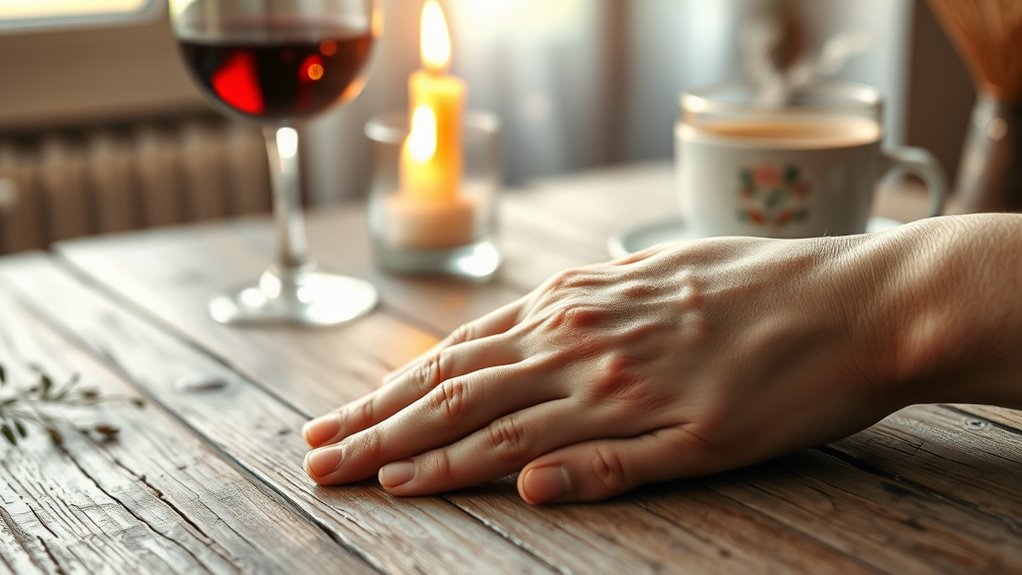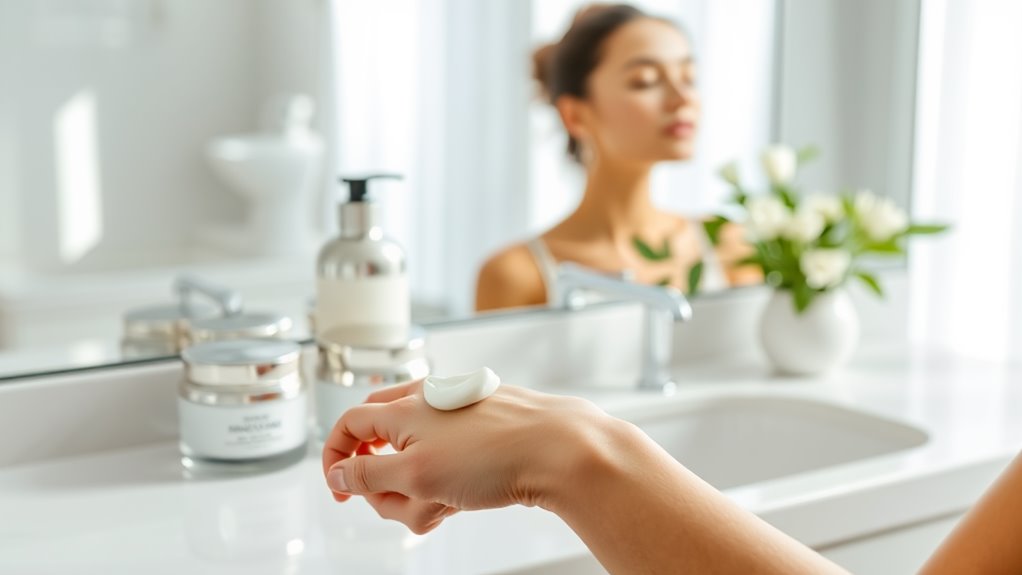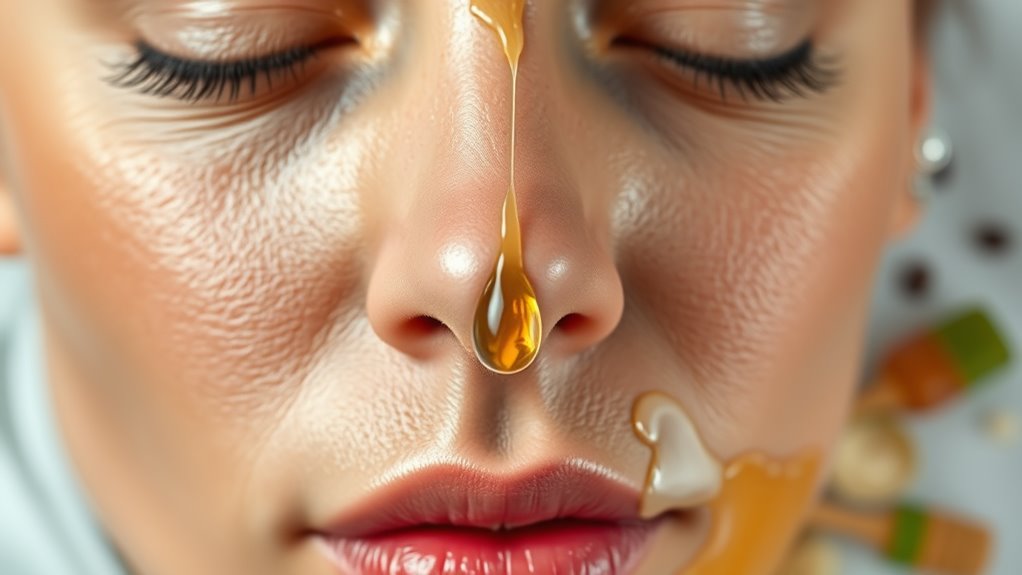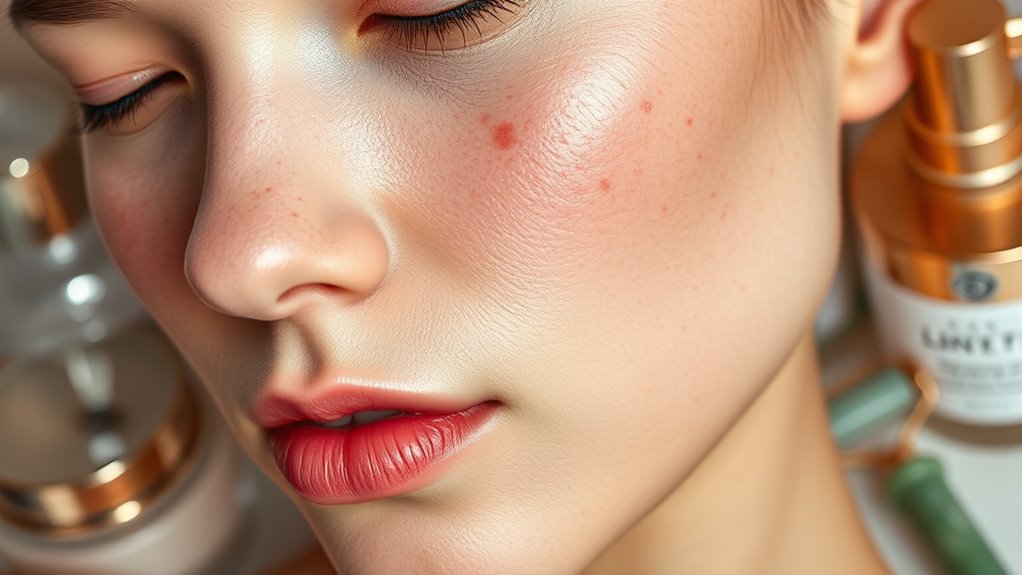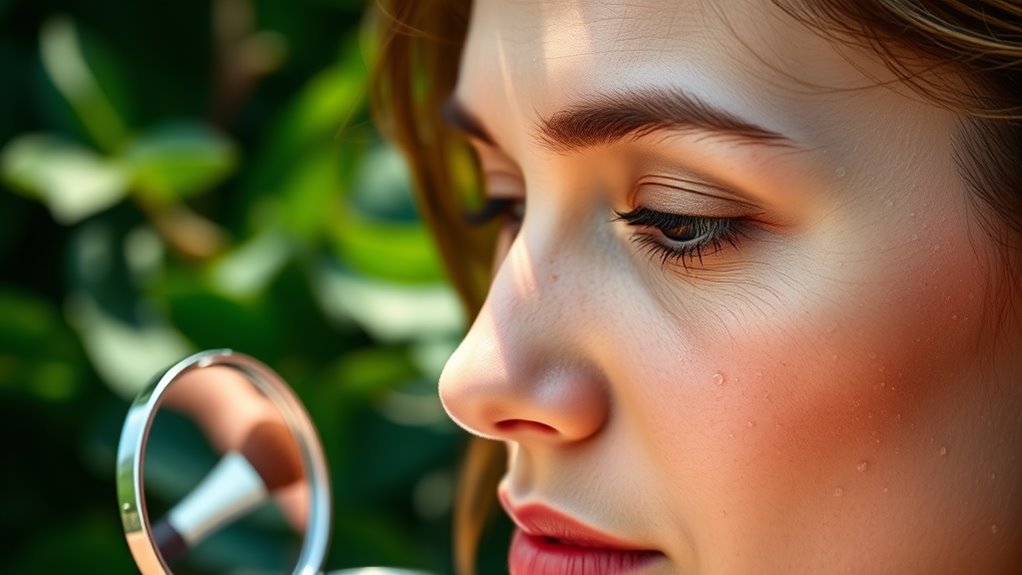5 Things That Are Drying Out Your Skin Without You Knowing
Harsh soaps and cleansers strip your skin of natural oils, leading to dryness. Overexposure to hot water and low humidity environments also pull moisture away from the skin. If you’re not drinking enough fluids or consuming hydrating foods, your skin can become rough and flaky. Certain medications, like diuretics and acne treatments, can contribute to skin dryness too. Identifying these hidden culprits can help you regain healthy skin. Discover more insights on maintaining skin hydration.
Key Takeaways
- Harsh soaps and cleansers strip natural oils, leading to dryness and irritation.
- Frequent exposure to hot water increases transepidermal water loss, causing skin dryness.
- Low humidity environments pull moisture from the skin, weakening its barrier function.
- Insufficient hydration from inadequate fluid intake can result in rough and flaky skin.
- Certain medications, like diuretics and retinoids, can cause dryness and reduce moisture retention.
Harsh Soaps and Cleansers
When you wash your skin with harsh soaps and cleansers, you might strip away its natural oils, leading to dryness and irritation. Many people overlook this as one of the unnoticed dry skin causes.
These products often contain sulfates and other aggressive ingredients that disrupt your skin’s barrier, resulting in a compromised moisture retention system. You may notice your skin feeling tight or flaky after cleansing, signaling that it’s losing essential hydration.
Opting for mild, pH-balanced cleansers can help preserve your skin’s moisture levels. Always check ingredient labels and choose formulations enriched with hydrating elements like glycerin or natural oils. Additionally, recognizing harsh cleansers can empower you to make better choices for your skincare routine.
Being mindful of your cleansing routine can significantly enhance your skin’s health and prevent unnecessary dryness.
Overexposure to Hot Water
Although it may feel soothing, overexposure to hot water can significantly contribute to dry skin. When you frequently immerse yourself in hot baths or showers, the heat strips away your skin’s natural oils, which act as a barrier to moisture.
This process can lead to increased transepidermal water loss, resulting in parched and irritated skin. To mitigate these effects, consider reducing the water temperature and limiting your bathing time. Aim for lukewarm water instead, and always follow up with a hydrating moisturizer to replenish lost moisture.
Additionally, using a gentle, hydrating body wash can help maintain your skin’s integrity. By being mindful of your hot water exposure, you can preserve your skin’s health and hydration. Remember that stripping away natural oils can exacerbate the condition of tight, dry skin.
Low Humidity Environments
Low humidity environments can wreak havoc on your skin, causing it to lose moisture more rapidly than usual. When the air lacks moisture, it pulls water from your skin, leading to dryness, flakiness, and irritation. This is especially problematic during winter months or in arid climates.
Your skin’s barrier function may weaken, making it more susceptible to external irritants and allergens. To combat this, consider using a humidifier in your living space to maintain an optimal humidity level. Additionally, apply a rich moisturizer to lock in hydration, especially after bathing. Be aware that environmental factors can significantly contribute to skin dryness. Pay attention to your skin’s signals; if you notice persistent dryness, adjust your environment and skincare routine accordingly to restore balance and protect your skin’s health.
Insufficient Hydration
Insufficient hydration is a common culprit behind dry skin, often overlooked in daily routines. You might underestimate the importance of drinking enough water or consuming hydrating foods. When your body lacks adequate fluids, your skin suffers, leading to a rough and flaky appearance. Additionally, insufficient hydration can exacerbate other hidden causes of dry skin, such as environmental factors and lifestyle choices.
| Hydration Source | Impact on Skin |
|---|---|
| Water | Essential for elasticity and moisture retention |
| Fruits & Vegetables | Provide vitamins and antioxidants for skin health |
| Caffeinated Beverages | Can lead to dehydration if consumed excessively |
To maintain optimal skin hydration, aim for at least eight glasses of water daily and incorporate hydrating foods into your diet. Recognizing the signs of dehydration can help you take action before your skin’s condition worsens.
Certain Medications and Treatments
Many people don’t realize that certain medications and treatments can significantly affect skin hydration.
For instance, diuretics, commonly prescribed for high blood pressure, can lead to increased urination and dehydration, impacting your skin’s moisture levels.
Some acne treatments, particularly those containing retinoids, can cause dryness and flakiness as they promote skin cell turnover.
Additionally, antihistamines, while effective for allergies, may also dry out your skin by reducing moisture retention.
If you’re on medication, it’s crucial to consult your healthcare provider about potential side effects related to skin hydration.
Staying informed allows you to take proactive measures, such as adjusting your skincare routine or increasing your water intake, to mitigate these drying effects and maintain healthy skin. Furthermore, over-exfoliating your skin can exacerbate barrier damage, contributing to increased dryness and irritation.
